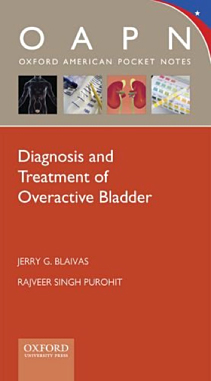Enuresis Treatment
Treatment should be predicated on a clear understanding of the underlying cause. Of course, if the enuresis is a symptom of a neurologic condition like multiple sclerosis or spinal cord tumor, those must be fully evaluated and treated whenever possible. In some situations, treatment of the neurologic condition will cure the enuresis; in others, a specific treatment will need to be tailored to the individual.
In men, the most common cause is a urethral blockage by the prostate or bladder neck. Treatment may be begun with an alpha adrenergic blocking agents such as terazocin (Hytrin) or doxazosin (Cardura), but this is only effective in a minority of men. More likely, prostatic or bladder neck surgery will be necessary. If overflow incontinence is the cause, it is still possible (and likely) that the underlying problem is urethral obstruction which should be treated as just discussed. If the bladder doesn’t work at all, a careful search for a neurologic etiology should be undertaken, but in the meantime, intermittent self catheterization should be begun. Intermittent self catheterization (SIC) is a means of emptying the bladder when you cannot urinate normally. It may be used as a temporary method while you are awaiting or undergoing treatment, or it may be part of a permanent treatment program. With this technique, you pass a catheter through the urethra into your bladder to empty the urine. It is usually done 3 – 6 times a day, depending on how much urine your bladder can safely hold. Even though it sounds gruesome, SIC is actually quite safe, easy and painless. Only in the rarest of circumstances should an indwelling catheter be used. This may be necessary if the person is unable to catheterize himself because of severe disability.
For men with enuresis due to involuntary bladder contractions from neurologic conditions (detrusor hyperreflexia) treatment is much more difficult. For most of the neurologic conditions, there is currently no cure, so the enuresis needs to be treated from a symptomatic viewpoint. For some patients, behavior modification is very effective for others anticholinergic medications (which stop the bladder from contracting involuntarily may be effective.
Occasionally, people with sphincter abnormalities have enuresis, but this is, for practical purposes always associated with severe daytime incontinence. Treatment of the daytime incontinence cures the enuresis as well.
One more thing, though. Many of the conditions that cause adult onset enuresis also cause silent kidney damage due to high pressures in the bladder. For this reason, it is important to obtain blood tests for kidney function (BUN & creatinine) and a renal ultrasound to be sure that there is not a blockage to the kidney.
Why Choose a Uro Center Urologist in New York?
The urologists at the Uro Center in New York are experts in their field, bringing academic and research based innovation to the clinical forefront. Our urology team specializes in areas of treatment such as: robotic surgery, reconstructive urology, men’s health & infertility, kidney stones, urologic oncology, penile implant surgery, urethral stricture, BPH, Urinary incontinence treatment, Mesh complications, Enlarged prostate treatment, Urodynamics, vesicovaginal fistula and female incontinence in New York.
Request an Appointment











